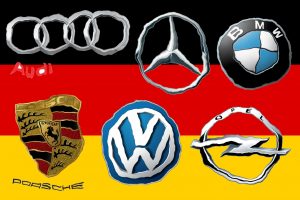The automotive industry is undergoing a significant transformation with the increasing focus on electric vehicles (EVs) due to environmental concerns and advancements in technology. German carmakers, known for their expertise in traditional internal combustion engine vehicles, are facing the challenge of competing with electric car producers. This shift towards electric mobility has raised questions about the ability of German car manufacturers to adapt and compete effectively in this evolving market.
German carmakers such as Volkswagen, BMW, and Mercedes-Benz have traditionally excelled in producing high-performance luxury vehicles with powerful internal combustion engines. However, the transition to electric vehicles presents several challenges for these companies. One of the primary obstacles is the need to invest heavily in research and development to catch up with established electric car producers such as Tesla, which have been at the forefront of EV technology for years. Additionally, the shift towards electric mobility requires a rethinking of manufacturing processes, supply chains, and infrastructure, which may pose challenges for traditional automakers.
In response to the growing demand for electric vehicles, German carmakers have been investing substantial resources in developing their electric vehicle technology. For instance, Volkswagen has committed to investing billions of euros in electric mobility and aims to become a leading player in the EV market. Similarly, BMW has launched its electric vehicle lineup under the BMW i brand, showcasing its commitment to sustainable mobility. These investments demonstrate the determination of German carmakers to compete with electric car producers by leveraging their engineering expertise and financial capabilities.
Despite the challenges, German carmakers possess certain advantages that can enable them to compete effectively with electric car producers. Their strong reputation for engineering excellence, precision manufacturing, and emphasis on quality can be leveraged to develop high-quality electric vehicles that meet consumer expectations. Moreover, their established global presence and distribution networks provide a competitive edge in reaching markets worldwide. Additionally, German automakers have a legacy of innovation and are well-positioned to integrate advanced technologies into their electric vehicle offerings.
The regulatory environment plays a crucial role in shaping the competitiveness of German carmakers in the electric vehicle market. With stringent emissions regulations and government incentives favoring electric mobility, there is a growing impetus for automakers to prioritize their electric vehicle strategies. Furthermore, consumer preferences are shifting towards sustainable transportation solutions, creating a favorable market trend for electric vehicles. German carmakers can capitalize on these developments by aligning their product portfolios with evolving consumer demands.
To enhance their competitiveness in the electric vehicle space, German carmakers have pursued collaborations and partnerships with technology firms and battery suppliers. These strategic alliances enable access to cutting-edge technologies and expertise in areas such as battery development and energy storage systems. By leveraging external partnerships, German automakers can accelerate their transition towards electrification while mitigating some of the inherent challenges associated with developing EV technology independently.
In conclusion, while German carmakers face significant challenges in competing with electric car producers, they are actively addressing these hurdles through substantial investments in electric vehicle technology, leveraging their engineering prowess, capitalizing on market trends, and forging strategic partnerships. The transition towards electrification represents a paradigm shift for the automotive industry, and German automakers are positioning themselves to remain competitive in this evolving landscape.






